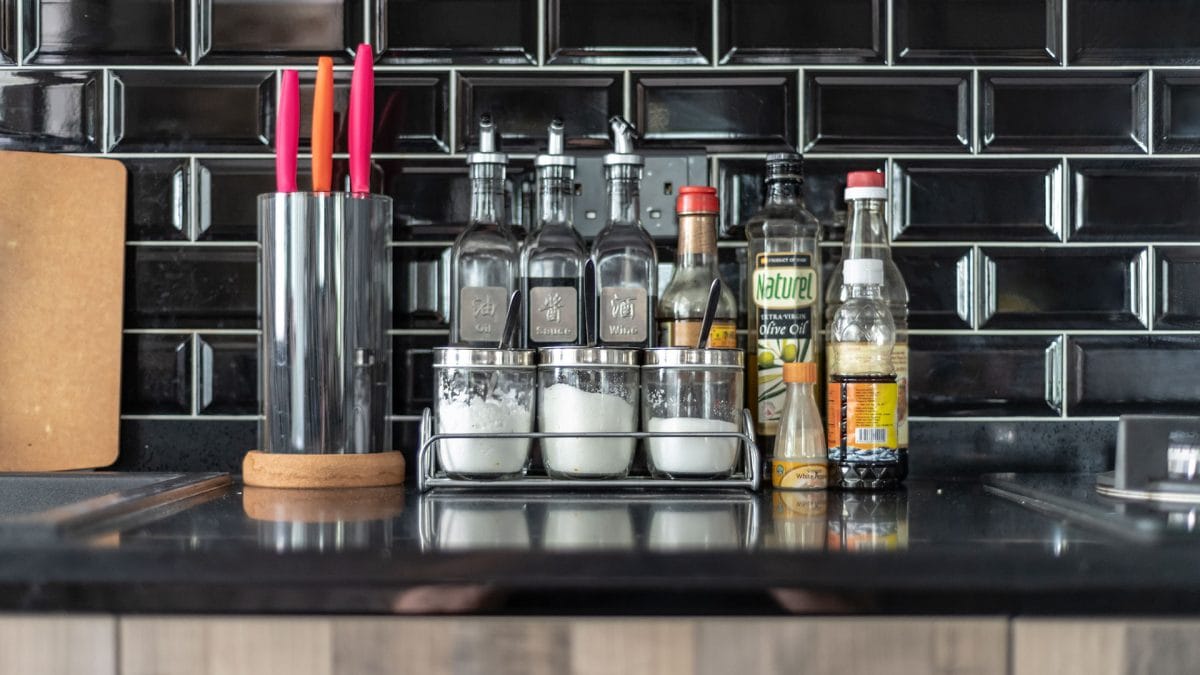Choosing a countertop surface material that suits your lifestyle is the first step to a functional kitchen. Your counters are, after all, where cooking actually happens. We could also argue that your counters are the backdrop and the main event in any kitchen: They take up a lot of visual real estate. And the materials and options you choose, whether indestructible composite slabs or handmade tiles are for utility as much as for style.
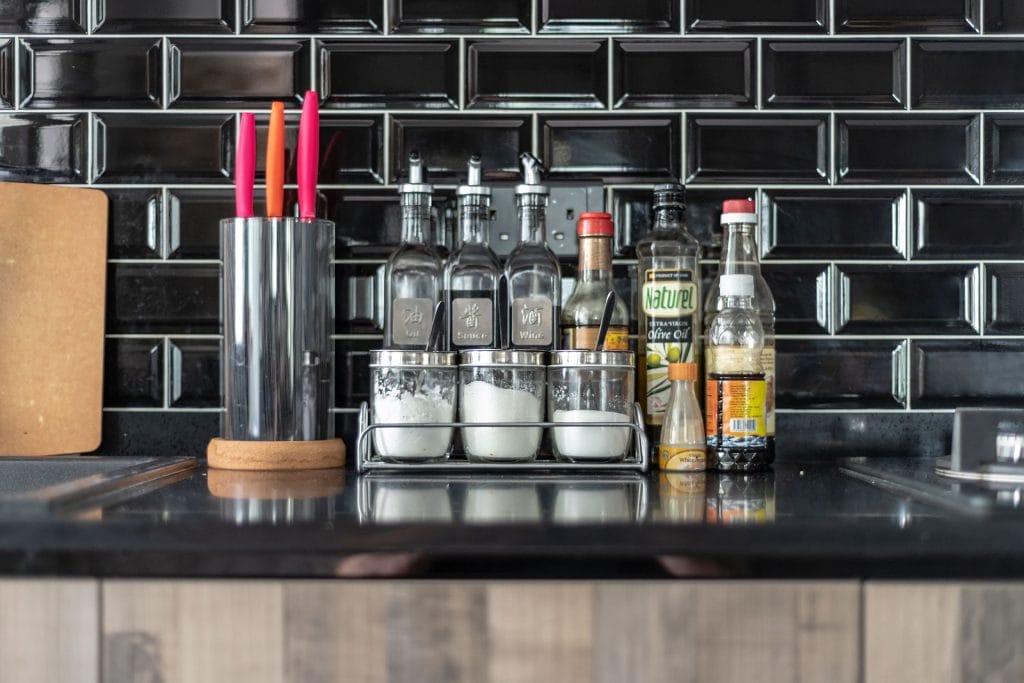
That said, choosing the right countertop can be tricky. First, there are so many options: How do I know what marble I want? And what’s the difference between quartz and quartzite? Come to think of it, what exactly is quartzite anyway? Between natural, engineered, and man-made materials and the colour options with each, there’s a lot to learn.
Ahead, you’ll find everything you need to know about countertops. But before you invest or fall in love with any one thing, here’s a checklist of things to keep in mind:
- Colour and design (the style statement you want to make)
- Size and shape of material (thickness, length, and edge style of the slab)
- Integration with backsplash (if the materials will match)
- A kitchen island (whether or not you want one, and matching it with the counters)
- Durability and ease of maintenance (think about how you’ll use the space)
- The total cost of ownership (not only initially, but also future cost for maintenance).
And with that in mind, read on to see how to make the best decisions for your space and budget.
LAMINATE
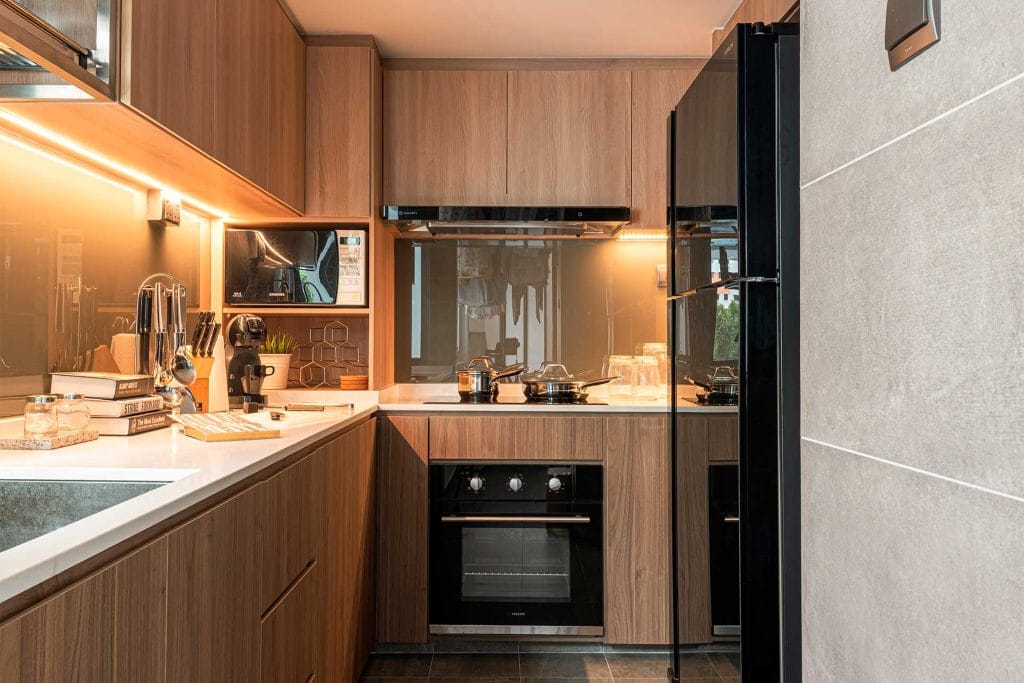
This nonporous acrylic comes in endless looks, so it’s ideal for those who want to go wild with colours and patterns, whether that’s a monochromatic statement or a playful design schemes.
SOLID SURFACE
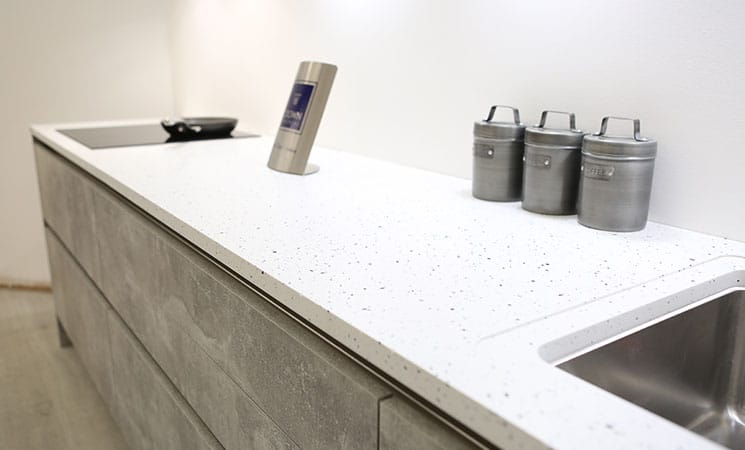
“Solid surface is an artificial stone, mostly a mixture of natural materials (like stone) and an acrylic bonding agent,”. Unlike natural stone that patinas over time, solid surface “will turn old and worn out,” but it’s still very durable. And resistant to most household cleaning supplies! Plus, it’s one of the least expensive countertop options.
QUARTZ

Best for the low-fuss cook, quartz requires no sealing or polishing and has double the impact resistance of natural stone, but it’s still a bit sensitive to heat, so hot cookware shouldn’t be set directly on it. Quartz countertops are created by mixing quartz particles with resin and polymers to create an extremely durable surface that looks like natural stone. This blend of natural stone and synthetic resins is more resistant to household cleaning supplies and chemicals than natural stone options (so you can keep surfaces looking pristine at all times). Some high-quality quartz materials can be just as costly as natural ones.
TERRAZZO

Terrazzo is a composite material made of up chips of marble, quartz, granite, glass, and others, that are then poured into a chemical resin cast. It was super popular in the 80s and saw a resurgence in demand, proving to be an unexpectedly timeless trend. It’s great as a continuous material stretching from countertops to the floor. Terrazzo also come in tiles, some bigger than others.
WOOD
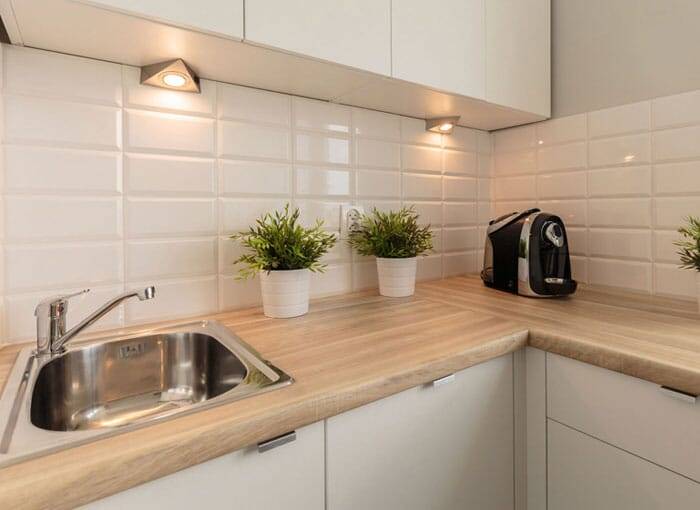
Or you could opt for classic wood countertops instead. Not only do they look timeless and classic in just about every kitchen, but wood surfaces are also pretty easy to maintain when sourced from good manufacturers with with high quality finishes. Sealing them makes them more durable, though they will show some wear over time. There’s a pretty wide variety when it comes to pricing, so it really depends on where you get it.
GRANITE
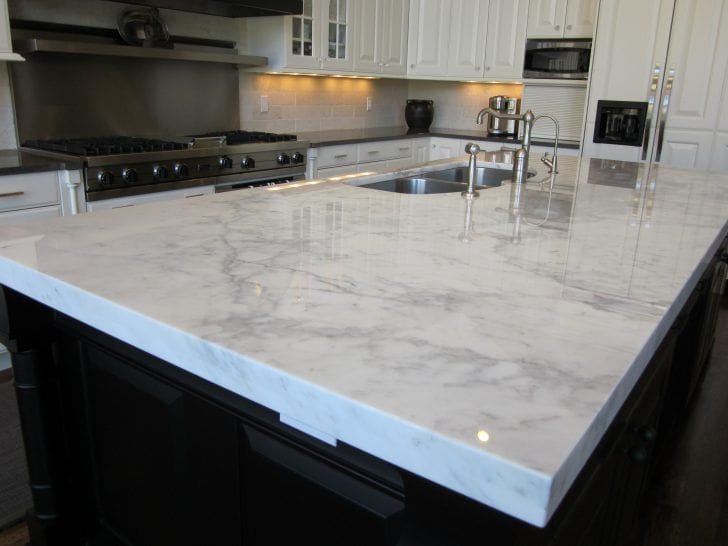
As one of the hardest natural stones, granite can be on the pricier side (though Margles tells us it can be about the same price as high-quality quartz). This means it’s also the most durable, making it great for family kitchens that get a lot of use but still want that element of luxury. It’s also one of the most scratches- and heat-resistant natural stones available. Granite will need to be resealed regularly to maintain its longevity. If you’re wondering where it comes from, granite is basically the crystalized form of hot liquid magma. Cool!
QUARTZITE

Not to be confused with quartz, this highly precious and covetable natural stone is similar in look to marble and onyx. Along with granite, quartzite is one of the more heat- and scratch-resistant natural stones. It’s often referred to as “engineered quartz” or “engineered stone” in reference to the sealing process applied to the natural stone after it’s harvested. Quartzite countertops can be quote porous, so aren’t always the best option in high-use areas.
MARBLE

Marble has pretty much become synonymous with every type of natural stone (or humanmade composite) we see. But it’s actually pretty specific. Interestingly, marble is a composite of a variety of minerals, including calcite, graphite, and more. It’s one of the softer natural stones, which makes it a little less durable.

